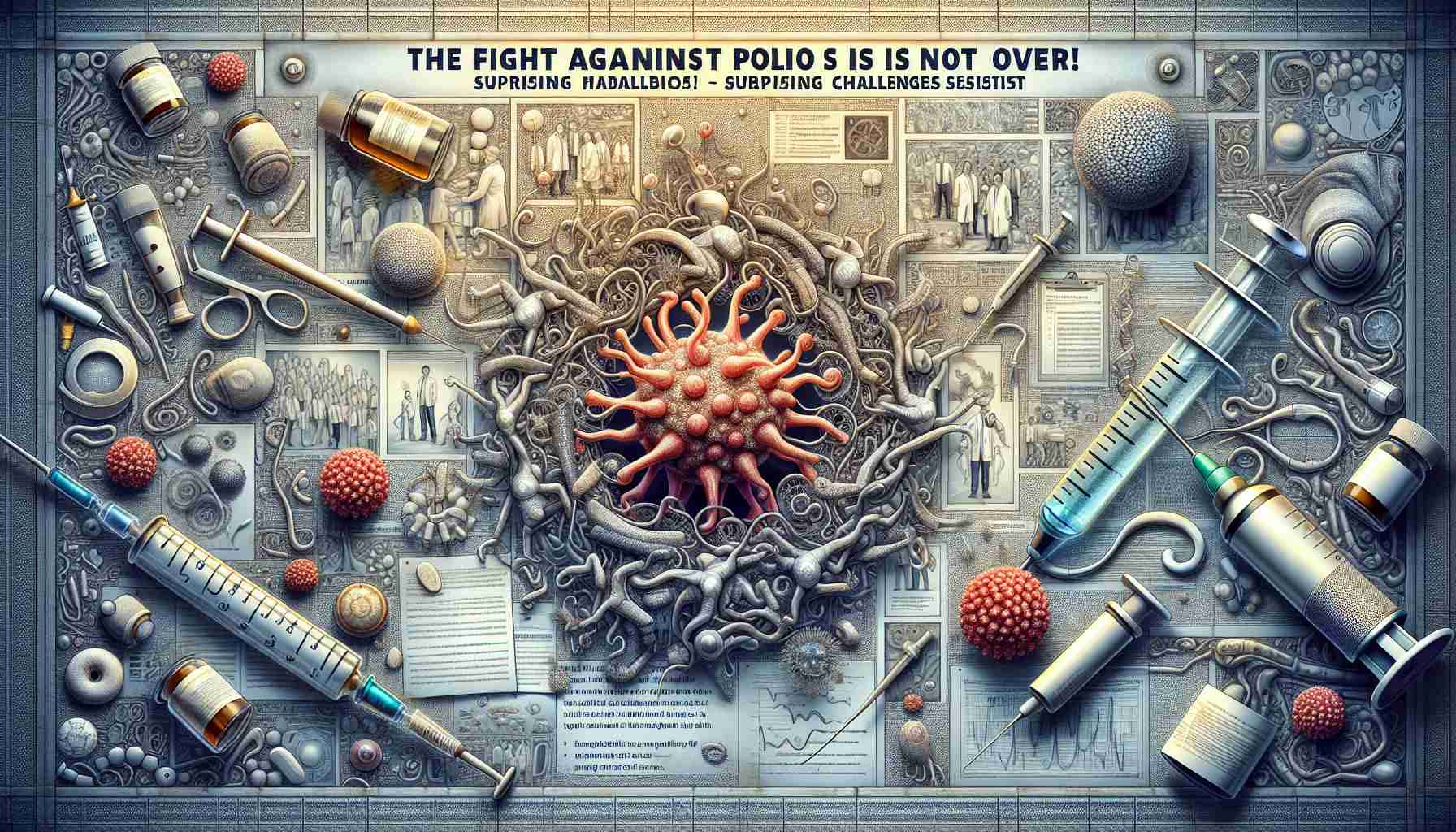Tackling Remaining Polio Threats in Africa
In August 2020, Africa achieved a significant milestone by declaring itself free from polio, a disease that once paralyzed thousands of children annually. This triumph emerged from the World Health Organization’s global initiative launched in 1988, which successfully reduced polio cases worldwide by 99%.
However, concerns arose in Southern Africa with the emergence of a vaccine-derived strain linked to insufficient vaccination coverage. Experts in health, communicating through online platforms, have emphasized the importance of addressing challenges beyond vaccination drives. They argue that strengthening supply chains and enhancing community education about polio is crucial, especially in remote areas.
Village Reach, a nonprofit organization, has been pivotal in refining healthcare supply chains. Luciana Maxim, a director at Village Reach, highlighted their efforts in assessing transportation systems across various African nations. The inadequate transport infrastructure in rural regions often requires innovative solutions, like utilizing bicycles or even helicopters, to ensure vaccines reach underserved communities.
When polio was detected again in places like Malawi and Mozambique in early 2022, immediate action was necessary to manage outbreaks. This included rapid lab sample processing and community awareness initiatives, as well as catching up on missed vaccinations following COVID-19 interruptions. The response involved diverse transportation methods, including the strategic use of drones for vaccine delivery.
Maxim pointed out that 13 out of 15 countries they worked with faced vaccine-derived polio outbreaks, highlighting the necessity for an integrated approach to disease management. Engaging local communities as partners in this battle remains paramount, with efforts to train community members to act as mobilizers against polio.
Eradicating Polio: The Ongoing Battle in Africa
Tackling Remaining Polio Threats in Africa
While Africa celebrated its declaration of polio-free status in August 2020, the continent continues to face challenges from lingering threats, including vaccine-derived strains due to insufficient vaccination coverage. The emergence of these strains in Southern Africa has driven experts to reiterate the necessity of a multifaceted approach to fight polio beyond vaccination efforts.
The Role of Supply Chain Management
Organizations like Village Reach are crucial in strengthening healthcare supply chains in order to effectively prevent and treat polio outbreaks. Under the direction of Luciana Maxim, the nonprofit conducts extensive assessments of transportation logistics in various rural African regions. Notably, the lack of adequate road infrastructure often necessitates creative solutions, including the use of bicycles, boats, and drones to facilitate vaccine distribution to remote communities.
FAQs About Polio in Africa
Q1: What is vaccine-derived poliovirus?
A1: Vaccine-derived poliovirus can emerge when the weakened virus strains in oral polio vaccines circulate in under-immunized populations, leading to rare but serious outbreaks of polio.
Q2: How are communities being educated about polio prevention?
A2: Community education initiatives involve training local leaders and health workers who can mobilize populations and disseminate accurate information about vaccination and hygiene practices.
Use Cases for Innovative Transportation
The COVID-19 pandemic placed additional strains on existing public health systems, leading to interruptions in routine vaccination. In response, innovative methods like using drones for vaccine delivery have emerged, greatly improving response times in outbreak scenarios. In early 2022, when polio re-emerged in countries such as Malawi and Mozambique, quickly mobilizing these logistics became vital to maintain the immunization schedule and mitigate the outbreak.
Pros and Cons of Current Strategies
Pros:
– Community Engagement: Training local residents fosters commitment and trust in health initiatives.
– Rapid Response: Innovative transportation ensures swift delivery of vaccines to hard-to-reach areas.
– Comprehensive Approach: Addressing logistics, education, and vaccination creates a robust framework for disease management.
Cons:
– Resource Limitations: Funding and materials may be limited, especially in rural areas.
– Cultural Resistance: Some communities may resist vaccination due to misconceptions or misinformation.
– Logistical Challenges: Terrain difficulties in remote locations can hinder timely vaccine distribution even with advanced solutions.
Trends and Innovations
Recent efforts have underscored the importance of integrating technological innovations into health initiatives. Drones, for example, have become a game-changer in vaccine logistics, particularly for quick deliveries during disease outbreaks in areas with limited infrastructure. This trend highlights a vital intersection of healthcare, technology, and community activism.
Future Outlook
With the goal of complete eradication of polio in sight, Africa’s public health initiatives are evolving. The emphasis on community partnership, innovative logistics, and sustained education are fundamental in combatting both the re-emergence of polio and vaccine-derived strains. The commitment to these strategies will be crucial in making Africa not just polio-free, but robustly resilient against future health challenges.
For more information on polio eradication efforts, explore WHO’s initiatives and current updates.
